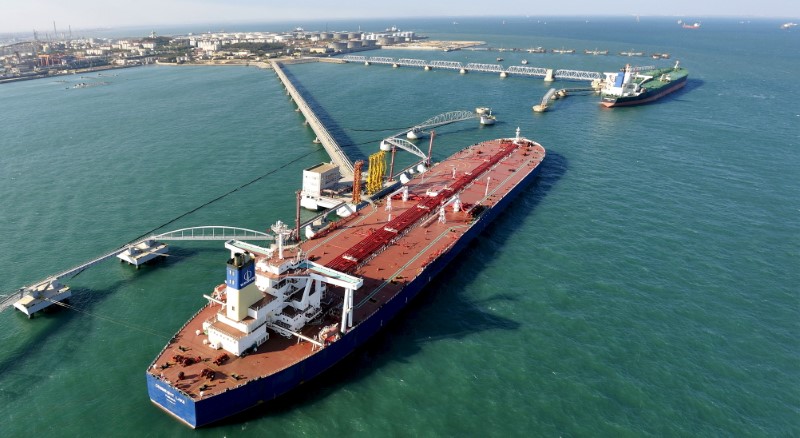By Henning Gloystein
SINGAPORE (Reuters) - Oil prices on Thursday clawed back some of the previous day's losses after Beijing said it would send a delegation to Washington to try to resolve a trade dispute between the United States and China that has roiled global markets.
Market sentiment, though, remains bearish amid the dispute and concerns of an economic slowdown in emerging markets.
Brent crude oil futures (LCOc1) were at $71.11 per barrel at 0712 GMT, up 35 cents, or 0.5 percent, from their last close.
U.S. West Texas Intermediate (WTI) crude futures (CLc1) were up 15 cents, or 0.2 percent, at $65.17 a barrel, held back somewhat by rising U.S. crude production and storage levels.
Both benchmarks lost more than 2 percent during the previous day's trading.
Traders said Thursday's markets were pushed up by news that a Chinese delegation led by Vice Minister of Commerce Wang Shouwen will hold talks with U.S. representatives led by Under Secretary of Treasury for International Affairs David Malpass later in August.
China and the United States have implemented several rounds of tit-for-tat tariffs on each others goods and threatened further duties on exports worth hundreds of billions of dollars.
Sentiment in oil markets was also cautious due to the rise in U.S. crude production and storage levels, as well as weakness in emerging market economies, particularly in Asia, that could limit demand growth.
For a graphic on U.S. oil drilling, production & storage levels, see - https://tmsnrt.rs/2OAyO8P
Output of U.S. crude
At the same time, U.S. crude inventories
"This build certainly hasn't helped market sentiment," Dutch bank ING said after the release of the EIA report.
While supply rose in the United States, Asia's markets were showing signs of economic slowdown due to trade disputes with the United States and currency weakness, dragging on oil market sentiment.
"Oil prices... exude bearish signals as investors worry on weaker global demand and rising production levels," Benjamin Lu of Singapore-based brokerage Phillip futures wrote in a note.
In Japan, official data on Thursday showed a slowdown in export growth as well as a decline in crude oil imports.
Providing Brent crude some support were looming U.S. sanctions against Iran's oil exports, set to start from November, with Asian buyers including India, South Korea and Japan already scaling back orders.
"The might of U.S sanctions has shown ... as petroleum importers have reduced purchase orders from Tehran," Lu said.

For a graphic on Top-5 Asian oil importer, see - https://tmsnrt.rs/2KSQY3f